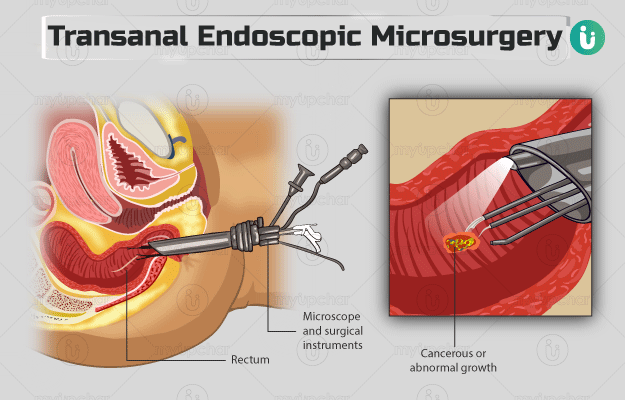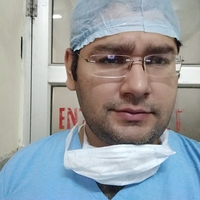Summary
Transanal endoscopic microsurgery or TEM is performed using microsurgical instruments to remove early-stage small cancer and noncancerous tumours from the rectum. The rectum is a 6-inch long part of the large intestine that stores stools until you pass them through the anus.
Unlike traditional abdominal surgery, TEM does not require any incision and is associated with a shorter hospital stay and quicker recovery. The surgery involves the insertion of a special microscope and small surgical instruments into your rectum through your anus to grab and remove abnormal growths and small cancers from the rectum.
You will need a hospital stay of one to two days following the procedure. Contact the surgeon if you experience severe pain, persistent bleeding, or raised body temperature after you are discharged from the hospital.










































